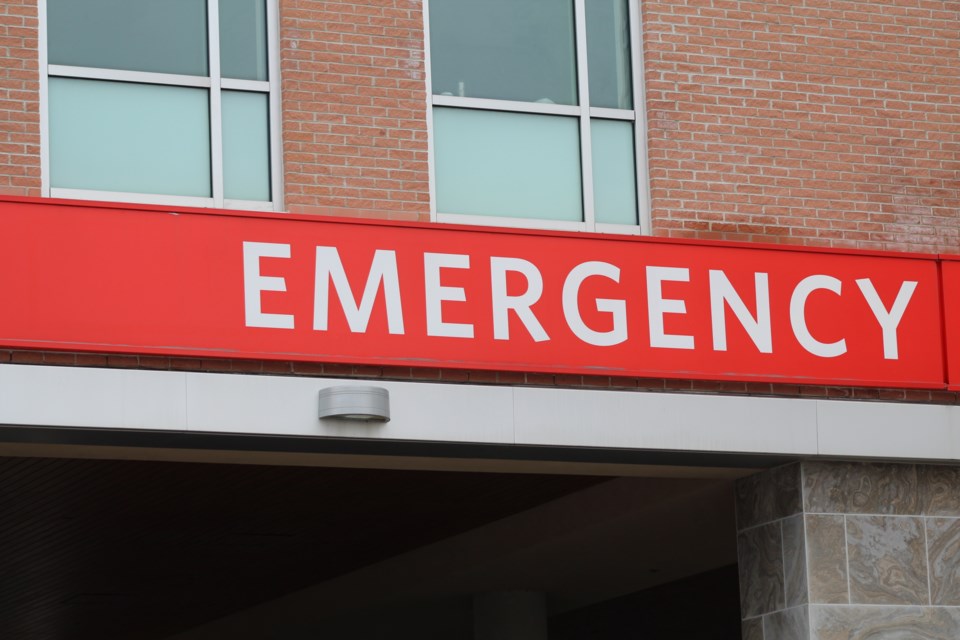I read Bonnie Luciano’s letter of Oct. 17 describing her unfortunate experience at Southlake Hospital’s emergency unit with a mixture of horror, sadness and dismay.
Of course, “we” must do better.
Up to my 80th year, I had never entered an emergency department as a patient. I remembered hardly a sick day in two decades. I described myself as in “robust health.”
However, in the past year, I visited emergency at Barrie's Royal Victoria Regional Health Centre (RVH) twice — for unrelated problems.
My first visit was dealt with quickly and thoroughly. I left clutching a prescription in under three hours. The emergency physician also scheduled a follow-up X-ray and an appointment with a specialist doctor. Problem resolved.
My second visit, unfortunately, turned into an overnight stay. I must admit that RVH's emergency department would not make it onto my list of bed-and-breakfast recommendations. However, once again I was seen by a doctor quickly — less than two hours — and given a bed in one of their cubicles.
Nurses woke me up through the night to take blood pressure and blood samples. In the wee hours of the morning, I was wheeled to the imaging department for a CT scan and discharged later that morning.
Not all emergency departments are overcrowded. Even those which have more patients than they can comfortably handle also have periods when they function as they should.
But all would function more efficiently if there were more nurses, even if these had to be dispatched from other hospital duties temporarily.
Unfortunately, most hospital departments appear to be running short-staffed these days.
One way to reduce crowding in a hospital emergency department is to invest more in primary care. One of my emergency visits occurred because my family doctor (yes, I have one) couldn’t give me an appointment for several days and my problem was too urgent to wait.
My second visit occurred because my symptoms developed on a Friday evening. Visiting my physician or a “walk-in clinic” was not possible – and exactly why emergency departments are needed.
Many of the people seen in an emergency department really do not belong there. They should be seen by a family doctor, nurse practitioner or physician assistant ... if only we had enough of these.
I have great respect for the professional skills of the latter two. I taught physician assistants on behalf of Canada’s military at Canadian Forces Base Borden, west of Barrie, for three years. Although in the past I taught both medical and science students at a British university (16 years), my CFB Borden classes were easily my very best students. I would not hesitate to entrust myself to their care. I am confident that Canadian nurse practitioners are of similarly high calibre.
How could we attract more health-care workers to primary care?
The (mythical) “corporations handbook” states that you must offer generous compensation — at that level it’s no longer a “wage” or “salary” — to attract the “best” CEO, CFO, etc. Somehow, that reasoning falls away for lesser management, and completely vanishes at “worker-bee” level.
Logic suggests that raising the wages for general practitioners, nurse practitioners, physician assistants and registered nurses would stop the bleed and attract more people into these very professions which prop up our health-care system.
Since medical staff in a general practice already know the patient, taking their history will take less time, speeding what is referred to as throughput. This is defined as a measure of how many units of information a system can process in a given amount of time.
According to my doctor daughter, taking a medical history is often the slowest part of a patient's visit.
That, in turn, should shorten waiting lists and thus improve the patient experience.
We often hear politicians state that we cannot afford to increase health-care spending. However, it is less costly to see and treat patients in a general practice setting than in emergency. So, health-care spending could actually decrease.
There may be political opposition, of course, but keep in mind that a medical doctor is 30 years old when they finish training. By then, they have absorbed an astonishing amount of knowledge and paid a small fortune for tuition. We must be prepared to pay for that expertise.
The capitalist principle is if you want more applicants or wish to retain the employees you have, raise the salary on offer until the numbers of people you want either apply or decide to stay.
Let’s try it.
